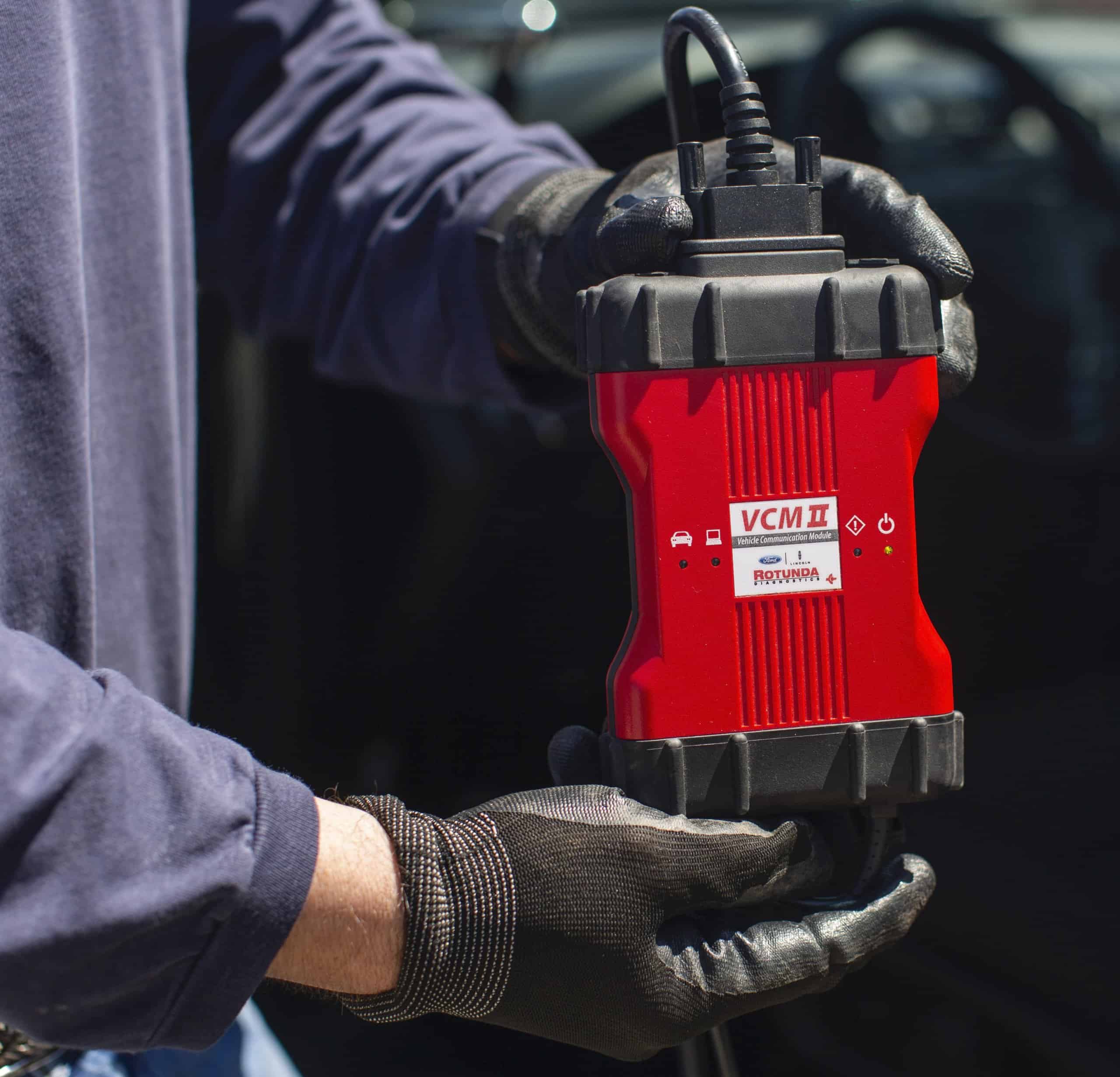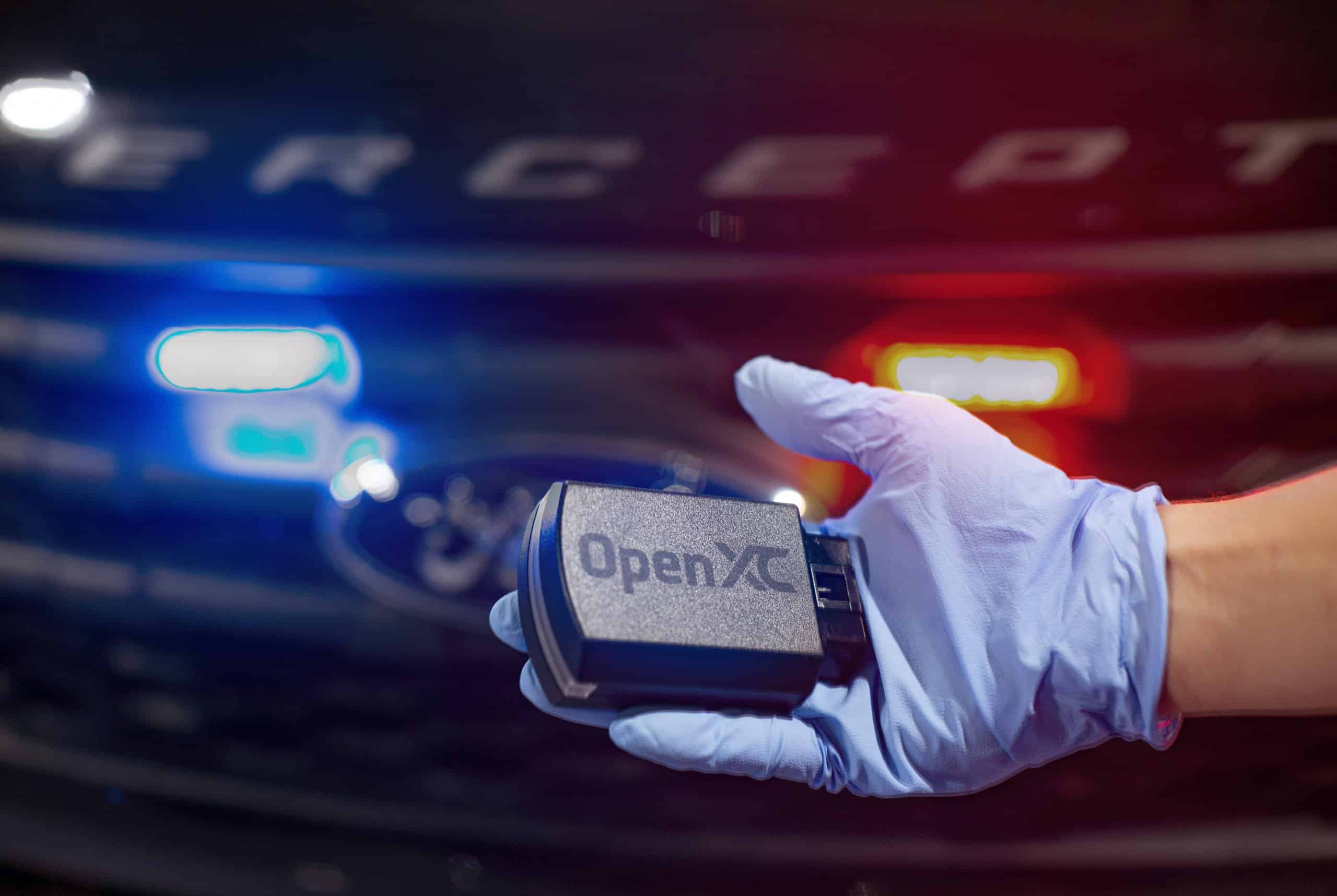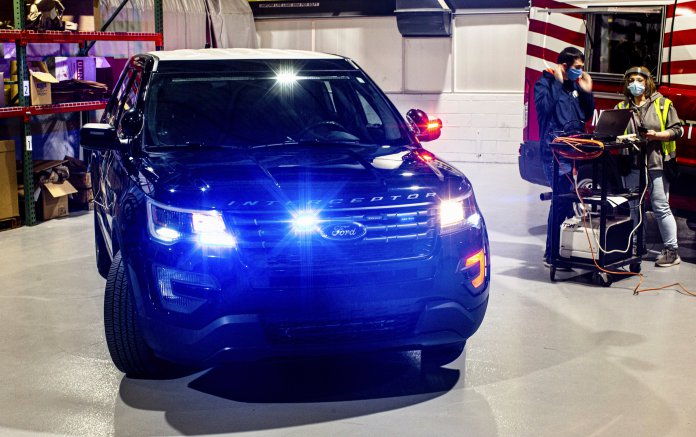Apparently, police departments using Ford’s Police Interceptor Utility (aka Explorer) as their cruisers no longer have to worry about the Covid-19 virus living inside those vehicles.
Working with several police departments and the Ohio State University, Ford has created a “new heated software enhancement” that uses the vehicles HVAC system to raise the temperature inside the SUV to 133 degrees, which Ford notes is “hotter than Death Valley on the hottest day.”
After 15 minutes at such extreme temperatures, Ford says the viral concentration inside the vehicle is reduced by more than 99 percent.
Ford said the software is available on all 2013-19 police units in the U.S., Canada and elsewhere as well. Ford recently introduced a new 2020 PIU hybrid.

Onboard computer gets revised software 
New controller plugs into dashboard
“First responders are on the front lines protecting all of us,” said Hau Thai-Tang, Ford’s chief product officer. “They are exposed to the virus and are in dire need of protective measures. We looked at what’s in our arsenal and how we could step up to help. In this case, we’ve turned the vehicle’s powertrain and heat control systems into a virus neutralizer.”
According to a Ford news release, “The solution is simple: Bake the vehicle’s interior until viruses inside are inactivated.”
Ford said the revised software warms the engine to an elevated level, puts temperature and fan settings on high, and then monitors interior temperatures until the entire passenger compartment reaches the optimum level for 15 minutes.
“Our studies with Ford Motor Company indicate that exposing coronaviruses to temperatures of 56 degrees Celsius, or 132.8 degrees Fahrenheit, for 15 minutes reduces the viral concentration by greater than 99 percent on interior surfaces and materials used inside Police Interceptor Utility vehicles,” Ford quoted Jeff Jahnes and Jesse Kwiek, laboratory supervisors at The Ohio State University department of microbiology.
“Law enforcement officers are being dispatched as emergency responders in some cases where ambulances may not be available,” said Stephen Tyler, Ford police brand marketing manager. “During one trip, officers may be transporting a coronavirus patient to a hospital, while another trip may involve an occupant who may be asymptomatic.”
“Used to supplement recommended cleaning methods, safely heating the passenger compartment can help ensure vehicles are properly disinfected before being deployed again,” Ford said.
“Officers can now use this self-cleaning mode as an extra layer of protection inside the vehicle in areas where manual cleaning is prone to be overlooked,” Tyler said. “This virus is an invisible enemy and we are proud to provide a solution to help the law enforcement community fight it.”
Ford said it is working to provide similar software for other police vehicles, but did not indicate whether such a system would be available on non-police vehicles.






Hats off to Ford engineers for continuing to think outside the box!